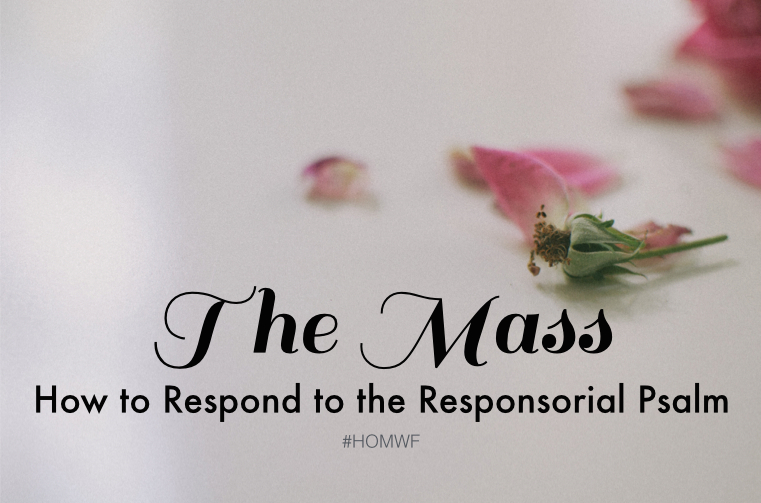Colossians 3:16; Ephesians 5:18-19; Zephaniah 3:14; Psalm 105:1-2; Revelation 7:9-10; THE MASS PDF Link
During the Liturgy of the Word, there are two readings and a psalm sandwiched in-between and the Gospel. The responsorial Psalm is usually either sung or read by a lector. Before the Responsorial Psalm, there is a period of silence that is placed right before we hear the psalm. It's a factored-in pause so that we can reflect and so that we can better understand the reading. We should take this pause for what it is intended (no it's not intended for the lector to walk to ambo, or for the person singing to get to the alter): the pause is there so that we can reflect on the reading. Then once we have had the time to reflect in silence we lift up our voices through the Responsorial Psalm.
The Psalms come from the Old Testament and were originally shortened so that it was immediately after the first reading and were turned into some of the most difficult chants that were used throughout mass. Eventually the Church started to retreat back to the original form of the Psalms, allowing for the assembly to participate as well. These psalms may be switched, as well, in accordance to the season in order to best fit, and in order to better help the assembly reflect on the readings.
So why at some masses is the psalm sung and why are they sometimes just read? Is it a shortage of lectors? Is it the preference of the priest? While these are factors in each Church this is not the deciding factor of the format of the mass.
These psalms were originally written for two intended purposes: for liturgical worship and to be a song of praise. In Colossians, Paul talks to us and instructs us that we are to sing the psalms, hymns, and any other canticles. Also in Acts, "Singing is the sign of the heart's joy." So what better way to reflect and respond to the readings than in singing. We are urged to joyfull sing out the praise of God during this time.
It is a time for us to reflect and to joyfully immerse ourselves into the heart of the readings and it allows us the chance to reflect on the readings more fully when we can reverently and fully sing the song of praise that we have placed before us.
How is God speaking to you in this post or today's reading? Enter a comment below or click HERE if you are reading from your phone. (Commenting is optional, but always grace-filled.) Thank you for letting us into your life and for being a part of ours!


